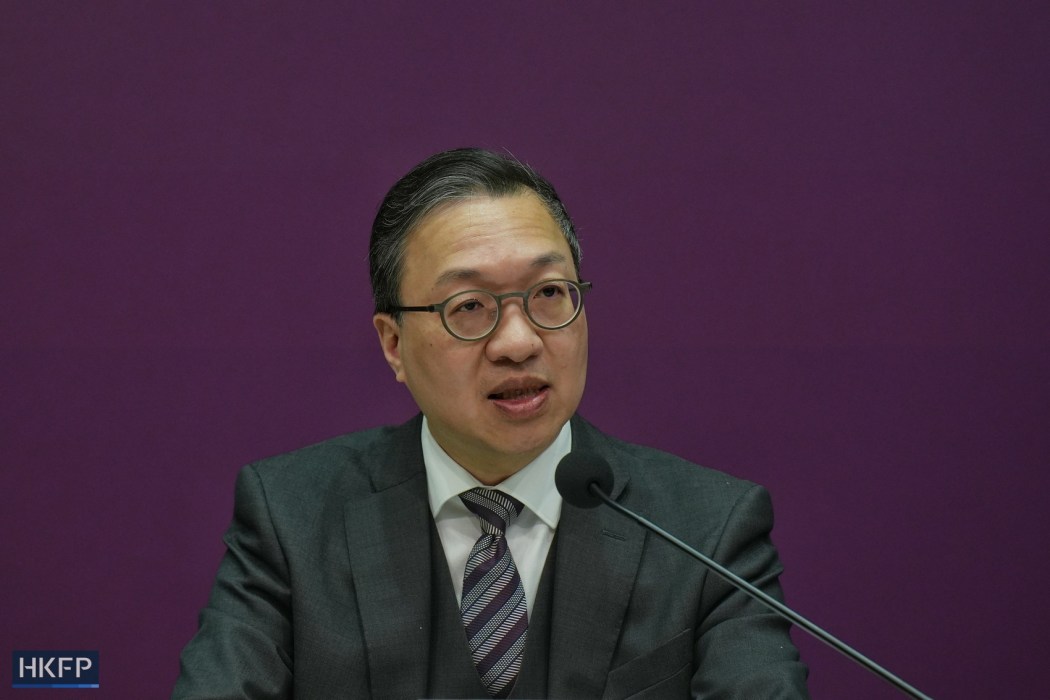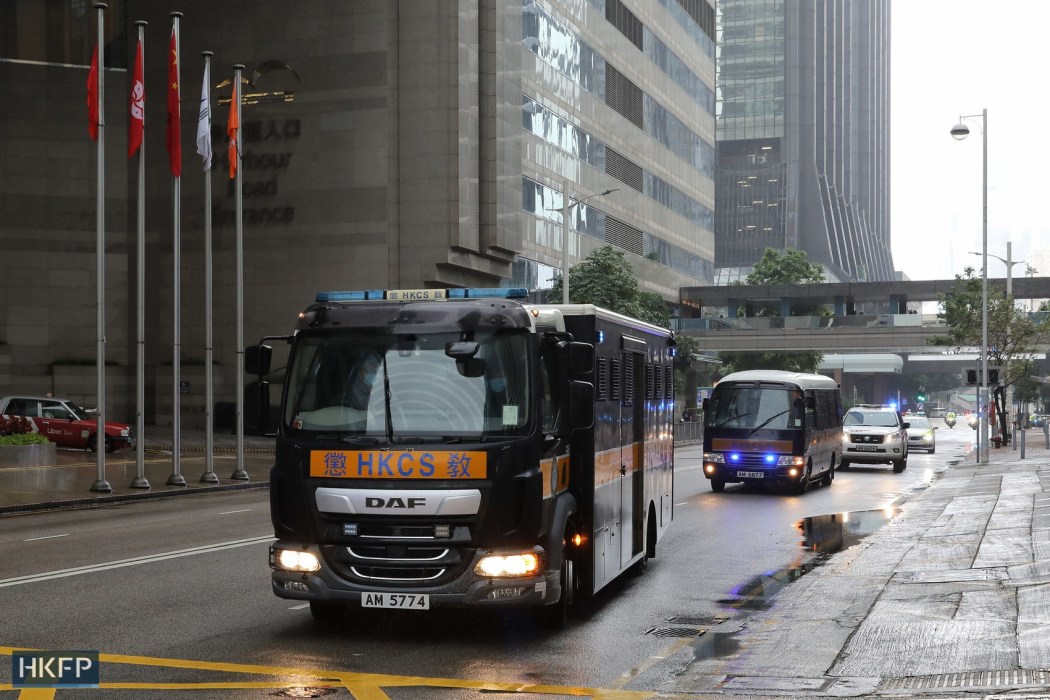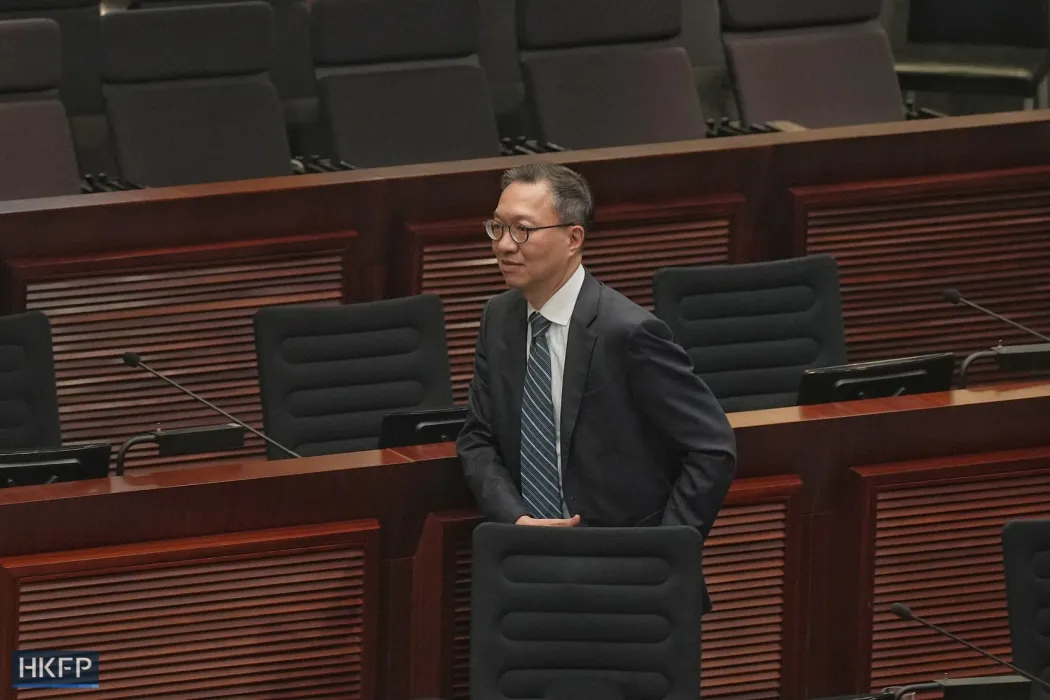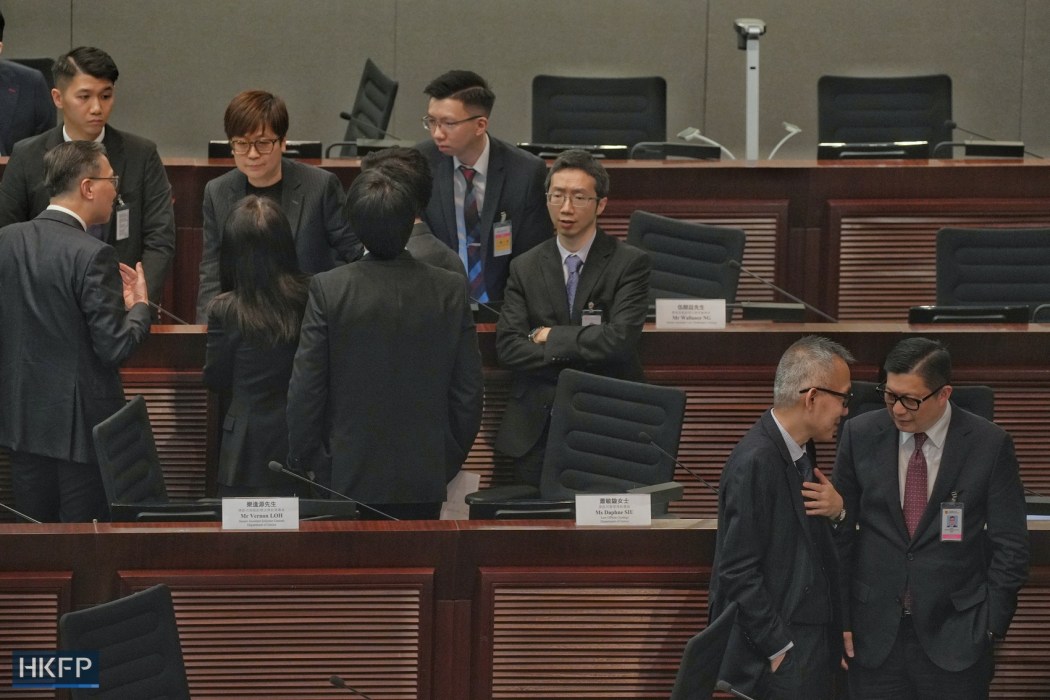Proposed limits on Hong Kong national security detainees’ access to lawyers would depend on police investigation, the city’s justice minister has said.

Speaking to lawmakers at the Legislative Council on Monday (LegCo), Secretary for Justice Paul Lam said the two clauses in the draft bill for the city’s domestic security law – known as Article 23 – which refer to limiting those held on suspicion of endangering national security from accessing specific lawyers or, in certain circumstances, from seeking legal advice, would be applied according to police intelligence.
“[Which clause to apply] really depends on how much intelligence we have, how likely there is to be an accomplice outside to tip off others, and that how certain we can be about [an alleged accomplice’s] identity,” Lam said in Cantonese, adding that “accomplices” could be lawyers.
According to the bill, police could apply for a court warrant to stop a suspect from seeking counsel from “specific lawyers” during the pre-charge detention period, which authorities also proposed extending to up to 16 days.

Police could also bar detainees from meeting any lawyers at all for 48 hours on the grounds that the legal visit “will endanger national security or cause bodily harm to any person,” the draft bill states.
A marathon discussion at the LegCo continued on Monday, after the bills committee convened extra meetings over the weekend to fast-track the legislative process of Article 23, with lawmakers focusing on the proposed limits to legal visits during detention, a constitutional rights guaranteed by the Basic Law, Hong Kong’s mini-constitution.
See also: New powers proposed for police, courts to limit national security detainees’ access to lawyers
Lam said the rationale behind the proposal was that some lawyers could exploit their privilege when meeting detainees to facilitate acts that endangered national security or impede investigations.
“The guiding thought is that some lawyers are not sincerely providing legal services, but instead they may take the opportunity to destroy evidence or notify [an accomplice],” he said. “[The proposals] are to prevent people from harming national security or obstructing our work in the name of legal counsel.”

But Lam said that the move of barring detainees from meeting lawyers could not be “endless” as it would be a “significant” limit on their constitutional rights.
Vernon Loh, senior assistant solicitor general of the Department of Justice, said the ban – which may last 48 hours – could only be applied for once during the detention period. He said the lengthier the ban, the more likely it could be subject to a legal challenge.
He added that the government had referenced national security legislation in the UK, under which suspects could be barred from meeting lawyers during a 48-hour detention period.
Apollonia Liu, deputy secretary for security, said that the 48-hour time frame could help police investigate the identities of lawyers, who if the detainees were to meet may have endangered national security.

Once the identities became clear, authorities could resort to the restrictions on specific lawyers, she added.
Lawmaker Kennedy Wong, a solicitor, asked whether there would be any appeal mechanism for lawyers, saying that such allegations would have “serious consequences” on their reputations.
Ivan Leung, acting deputy principal government counsel, said the court warrants would be handled by a magistrate in a closed court and that it would not affect the lawyers’ reputations.
He added that the restrictions would be imposed on the detainees’ rights and not the lawyers’, therefore there would not be appeal mechanisms for the latter.
Article 23 of the Basic Law stipulates that the government shall enact laws on its own to prohibit acts of treason, secession, sedition and subversion against Beijing. Its legislation failed in 2003 following mass protests and it remained taboo until after the onset of the separate, Beijing-imposed security law in 2020. Pro-democracy advocates fear it could have a negative effect on civil liberties but the authorities say there is a constitutional duty to ratify it.
The bill, which Chief Executive John Lee said should be passed “at full speed,” outlines a raft of national security offences including treason, insurrection, and sabotage, with sentences ranging up to life imprisonment.
Support HKFP | Policies & Ethics | Error/typo? | Contact Us | Newsletter | Transparency & Annual Report | Apps
Help safeguard press freedom & keep HKFP free for all readers by supporting our team























